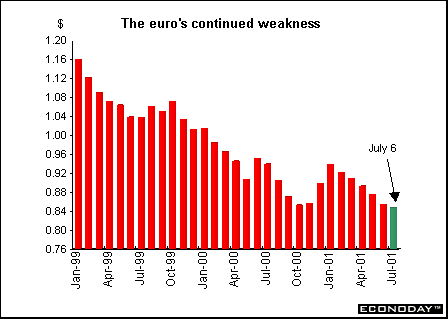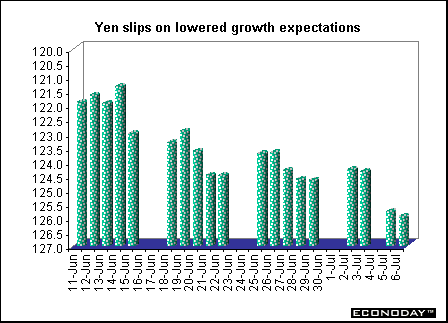
Currencies
The euro fell against the dollar as the European Central Bank left its policymaking interest rate at 4.5 percent. While business and consumer confidence fell for a fifth month, inflation is persistently holding above the European Central Bank's ceiling of 2 percent, making it difficult for the central bank to lower borrowing costs for a second time this year. ECB officials continue to say that the region's interest rates are at an appropriate level.

One of the pressures on the euro last week was that the European Parliament threw out a takeover directive that was 12 years in the making. The directive would have harmonized takeovers rules and boosted shareholders' powers. This makes it increasingly unlikely that the 2005 deadline for a common financial services market in the EU will be attainable.
The yen weakened to over 126 yen per dollar after Haruhiko Kuroda, the currency chief at Japan's Ministry of Finance, said he would allow the currency to decline. Japan's vice finance minister for international affairs said that it is appropriate to see the yen rise or fall as long as it reflects economic fundamentals. Japanese officials are trying to weaken the yen to bolster the sputtering economy through export led growth, although they want to distance themselves from appearing to do so.

Japanese exporters may have helped the yen Friday as they took advantage of the currency's fall to bring home overseas earnings. The dollar hasn't held above 125 yen since the beginning of April, and the rise to that level may have prompted exporters to convert earnings to yen while it lasted. The yen has tumbled in recent months as reports suggested that the economy is already in recession while the United States appears to be rebounding. Slower growth tends to hurt a currency by making financial assets less appealing.


Introduction • Global Stock Market Indexes • Recap of Global Markets • Currencies • Indicator Scoreboard

The Bottom Line • Looking Ahead
|